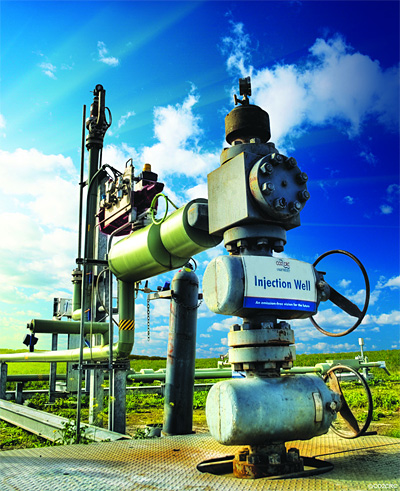Electricity from biomass with carbon capture could make western U.S. carbon-negative | Berkeley News
enerating electricity from biomass, such as urban waste and
sustainably-sourced forest and crop residues, is one strategy for
reducing greenhouse gas emissions, because it is carbon-neutral: it
produces as much carbon as the plants suck out of the atmosphere.
A new UC Berkeley study shows that if biomass electricity production
is combined with carbon capture and sequestration in the western United
States, power generators could actually store more carbon than they emit
and make a critical contribution to an overall zero-carbon future by
the second half of the 21st century.
By capturing carbon from burning biomass – termed bioenergy with
carbon capture and sequestration (BECCS) – power generators could become
carbon-negative even while retaining gas- or coal-burning plants with
carbon capture technology. The carbon reduction might even offset the
emissions from fossil fuel used in transportation, said study leader
Daniel Sanchez, a graduate student in UC Berkeley’s Energy and Resources
Group.
“There are a lot of commercial uncertainties about carbon capture and
sequestration technologies,” Sanchez admitted. “Nevertheless, we’re
taking this technology and showing that in the Western United States 35
years from now, BECCS doesn’t merely let you reduce emissions by 80
percent – the current 2050 goal in California – but gets the power
system to negative carbon emissions: you store more carbon than you
create.”
BECCS may be one of the few cost-effective carbon-negative
opportunities available to mitigate the worst effects of anthropogenic
climate change, said energy expert Daniel Kammen, who directed the
research. This strategy will be particularly important should climate
change be worse than anticipated, or emissions reductions in other
portions of the economy prove particularly difficult to achieve.

No comments:
Post a Comment